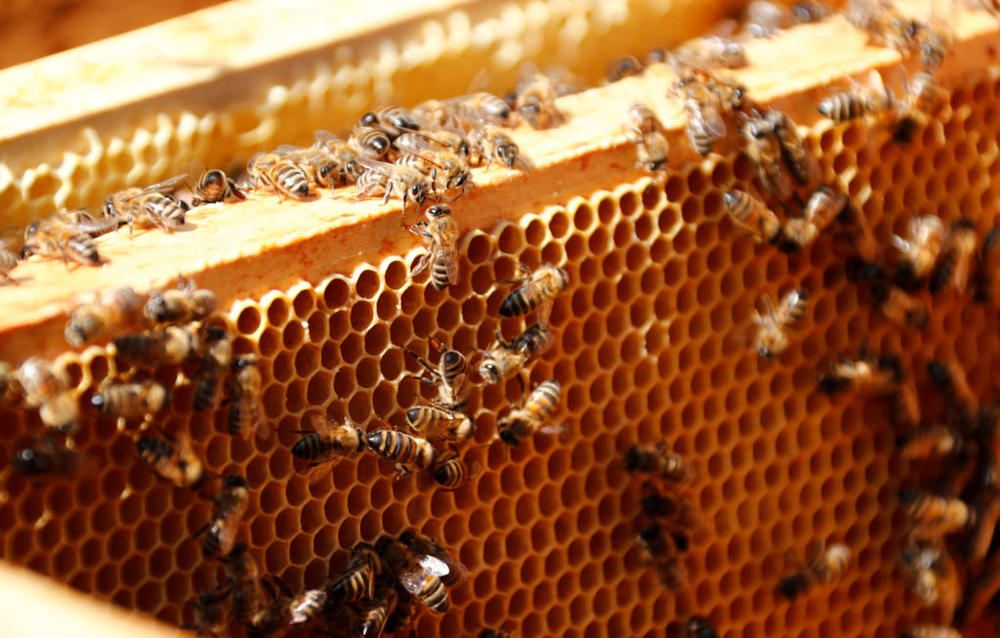
Section Branding
Header Content
Georgia joins online mapping tool to reduce bee-killing 'pesticide drift'
Primary Content
LISTEN: Georgia Agriculture Commissioner Tyler Harper talks about the state's participation in Fieldwatch, an online mapping tool aims to make beekeepers and farmers more aware of their neighbors so beehives can stay healthy. GPB's Orlando Montoya reports.

Pollinators like bees are critical to our food supply.
But many farmers rely on pesticides, which can kill bees.
To help beekeepers and farmers work together, Georgia has become the 25th state to join an online mapping tool aimed at reducing “pesticide drift” from farms to beehives.
Georgia Agriculture Commissioner Tyler Harper says the tool, called FieldWatch, helps farmers make more informed decisions related to pesticide applications.
“It helps us address those off-target drift applications and ensure that we have a collaborative effort of knowing where each of us are to continue to allow us to be successful across the entire spectrum of agriculture in our state,” Harper said.
Although use of the free registry is voluntary, many precision agriculture platforms include it in their software packages.
Georgia’s participation in Fieldwatch is part of a larger, yearslong program called Using Pesticides Wisely, a collaboration with the University of Georgia Extension.
“Since we’ve launched that, we’ve hosted over 200 different events across the state. We’ve trained more than 17,000 individuals on how to safely handle and utilize pesticides,” Harper said.
Across the 25 states and one Canadian province that participate in Fieldwatch, the company says it has 53,000 individual users, 68,000 registered sites and 2.4 million mapped acres.
“This model has been proven to build good stewardship and communication in agriculture,” said Bob Walters, Fieldwatch President and CEO.
Along with apiaries and farms, the registry also includes vineyards, Christmas tree production sites and other agricultural locations, which users can keep “private” and viewable only to other users.

